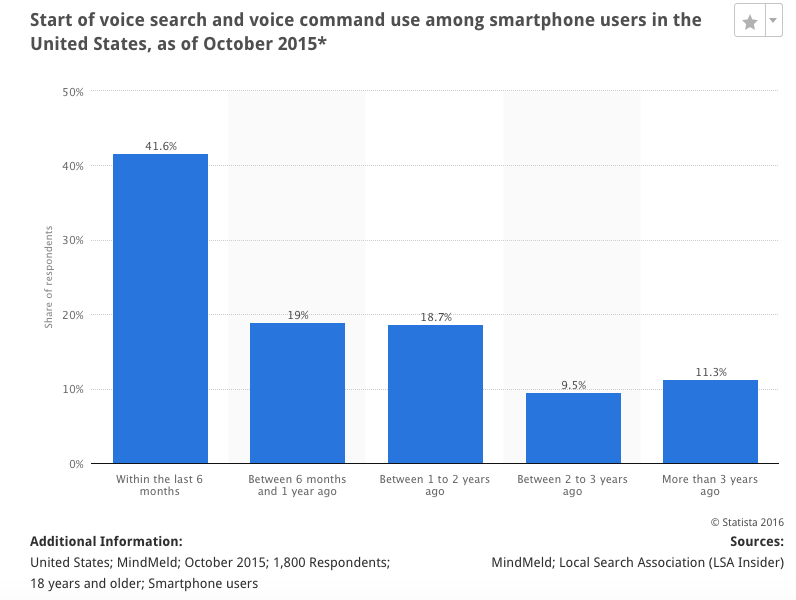50% of online searches will by voice searches by 2020.

The growth of voice search isn’t surprising. It’s easier and faster than text input, and everyone is looking for a way to become more efficient. This market is growing rapidly, and much of that growth can be is from the improvements to the search programs, apps, and tools entering the market every day. Google’s voice command app, Apple’s Siri, and Amazon’s Alexa are some of the most popular, but as more competition enters the market, the more these brands will have to improve their programs to keep up. Some major improvements that have recently entered the voice search market are:
Compound Queries
If you ask a question, you can now follow up that question with another about the same subject. If you ask “Where was Madonna born?” you can follow that up with “What year was she born?” and the search tools will understand that you’re still referring to Madonna. Voice search will also answer questions based on what apps or searches you are using.
Based on Location
If you are in a certain location and ask “Where is City Hall”, the search will assume you mean based on your current location.
Based on Your Information
You can verbally ask “What’s my address?” or What’s my IP?” and the search will understand that “my” refers to you.
One caveat is that most of these contextual voice searches are currently within the same program. So if your searching on Google, use the Google Voice search tool or Google Now. Google is also taking things one step further, and is working on what’s called “conversational shopping”. So in the future, you may be able to hit the button and say “Order me a large wonton soup from the nearest Chinese restaurant” and it will be as easy as that.
All that being said, voice search is moving fast, and businesses need to make sure that they’ve adjusted their SEO and SEM strategies to align with voice search.
In our next post we will share tips for incorporating voice search into your strategies.
Have questions that can’t wait? Contact us here.



 Ad Choices
Ad Choices